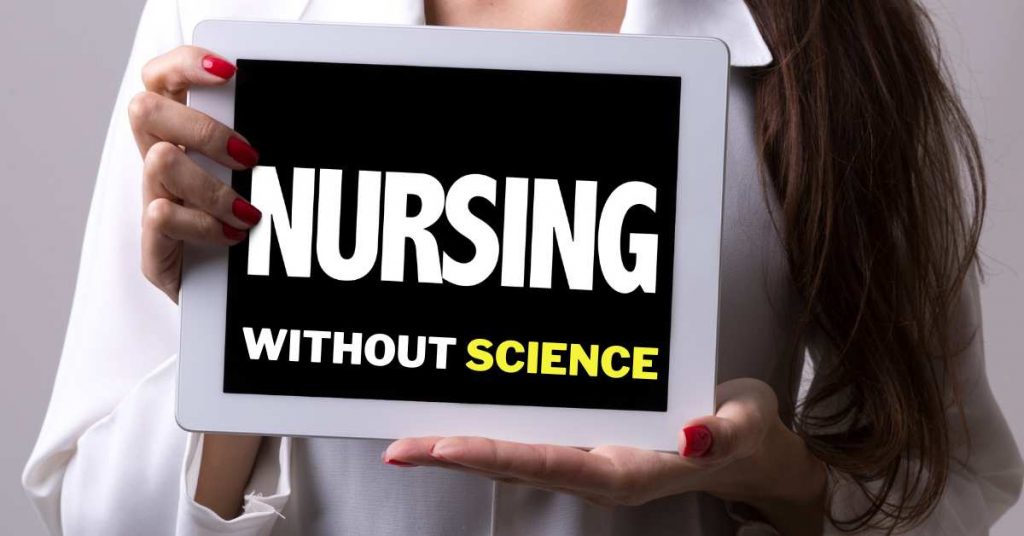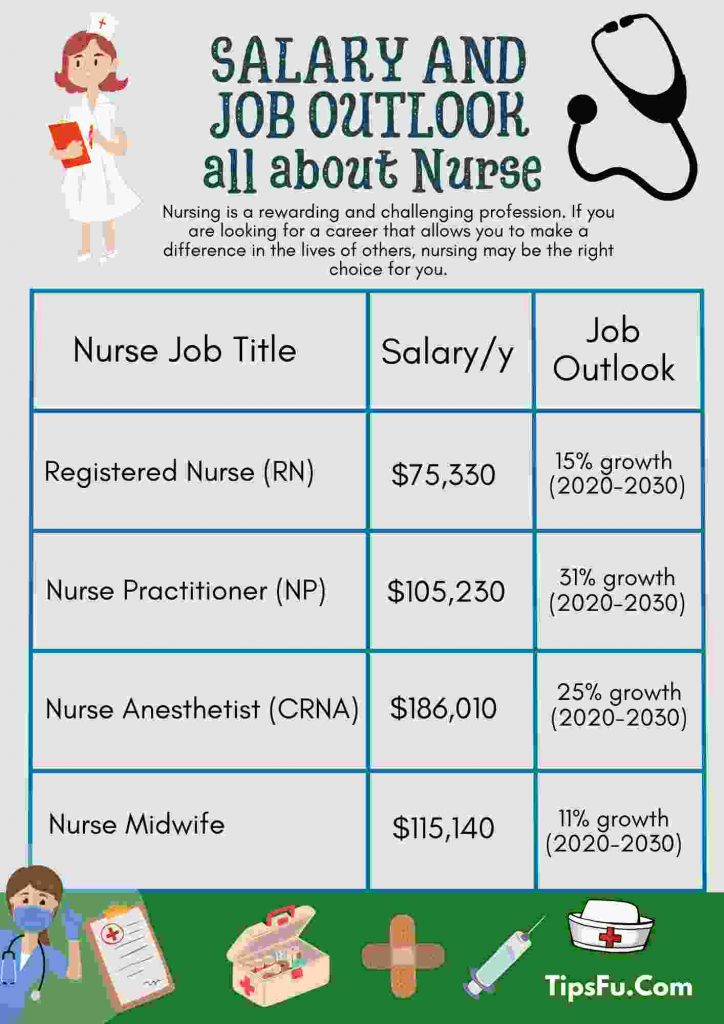Can I Study Nursing Without a Science Background?

Yes, it is possible to study nursing without a science background. Nursing programs typically require prerequisite courses in anatomy, physiology, biology, and chemistry, but these can be completed alongside the nursing curriculum. However, it will be more challenging, and you may need to take some prerequisite courses before being admitted to a nursing program.
Here are some of the things you can do to prepare for a nursing career without a science background:
- Take science courses at a community college or online.
- Get involved in volunteer work or paid healthcare experience.
- Shadow a nurse to get a better understanding of the field.
- Talk to a nursing advisor to get help planning your education and career.
Nursing is a rewarding career that offers many opportunities for growth and advancement. If you are interested in a career in nursing, don't let a lack of a science background stop you from pursuing your dream.

Here are some of the benefits of becoming a nurse:
- High job demand: The demand for nurses is expected to grow faster than average for all occupations through 2030.
- Good pay: The median annual wage for registered nurses was $75,330 in May 2020.
- Job security: Nursing is a stable and secure career.
- Opportunities for advancement: There are many opportunities for nurses to advance their careers, such as becoming a nurse practitioner or a nurse anesthetist.
If you are interested in a career in nursing, I encourage you to research and find a program that is right for you. You can achieve your goal of becoming a nurse with hard work and dedication.
This article will explore the requirements for studying nursing and the options available for those without a science background.
- Why Is A Science Background Important For Nursing?
- Can You Pursue Nursing Without A Science Background?
- Possibility of Studying Nursing without a Science Background
- Challenges and Considerations
- Alternatives For Non-Science Students Interested In Nursing
- Support and Resources
- Success Stories
- FAQs: Frequently Asked Questions
- Q: Can I Study Nursing Without A Science Background?
- Q: What Science Courses Do I Need To Take For Nursing?
- Q: How Can I Prepare For Nursing School Without A Science Background?
- Q: Is it easier to study nursing with a science background?
- Q: Can I take science courses alongside nursing studies?
- Q: What are the alternative prerequisites for nursing programs?
- Q: Are there any scholarships or financial aid available for nursing students?
- Q: Can I specialize in a specific nursing field without a science background?
- Bottom Line
Why Is A Science Background Important For Nursing?
Many aspiring nursing students wonder if they can pursue a career without a science background. However, having a science foundation is crucial for nursing education and practice. Nursing students must understand scientific concepts and skills such as anatomy, physiology, pharmacology, and microbiology.
A solid understanding of these scientific principles is essential for effective nursing practice and patient care. Employers value nurses with a science background and often prioritize them in hiring. A science background can also open up specialization opportunities and advancement in the nursing career.
While studying nursing without a science background is possible, having one provides a strong foundation for success in the field.
Can You Pursue Nursing Without A Science Background?
Studying nursing without a science background may seem daunting, but it’s possible. Most nursing programs require science prerequisites, but some schools don't. It's crucial to research admission requirements before applying. To increase the chances of admission, consider taking prerequisite science courses.
If not required by the school, studying them to understand better nursing concepts is optional. Some nursing schools, like the University of Central Arkansas, offer bridge programs for students without a science background. This program provides prerequisite courses and a nursing curriculum.
Another option is the University of Rochester's accelerated nursing program, which doesn't require a science background. Research and determination make pursuing nursing possible even without a science background.
Possibility of Studying Nursing without a Science Background
Despite the significance of a science background in nursing, pursuing a nursing education without prior exposure to these subjects is possible. Here are a few avenues that can help individuals with non-science backgrounds embark on a nursing career:
1. Prerequisites for Studying Nursing
Some nursing programs have specific prerequisites that students must fulfill before admission. These prerequisites often include science courses such as biology and chemistry. However, it's important to note that not all nursing programs have the same requirements. Some institutions offer alternative prerequisites or flexibility for students with non-science backgrounds.
2. Bridge Programs and Preparatory Courses
Several bridge programs and preparatory courses are designed to help individuals transition into nursing despite lacking a science background. These programs provide intensive instruction in the required scientific subjects and ensure students have a solid foundation before entering nursing school. Bridge programs offer a pathway to acquire the necessary knowledge and skills to succeed in a nursing curriculum.
3. Transferable Skills and Experience
While a science background is advantageous in nursing, other skills and experiences can also be valuable. For example, individuals with strong interpersonal skills, empathy, and a passion for helping others may excel in nursing, even without a science background. Nursing programs often consider these qualities alongside academic qualifications during the selection process.
4. Research nursing programs
There are many different nursing programs available. Research the programs that interest you and make sure they are accredited.
5. Apply to nursing school
Once you've met the requirements, you can apply to nursing school. The application process may vary depending on the school.
Nursing is a rewarding career that can be challenging but also very rewarding. If you're interested in nursing, don't let a lack of science background stop you. With hard work and dedication, you can become a successful nurse.

Here are some additional tips for studying nursing without a science background:
- Find a study buddy. Studying with a friend or classmate can help you stay motivated and on track.
- Join a study group. Study groups can be a great way to learn from each other and get help with complex concepts.
- Use online resources. There are many online resources available to help you learn about nursing. These resources can include videos, articles, and quizzes.
- Don't be afraid to ask for help. If you're struggling with a concept, don't hesitate to ask your professor or a tutor for help.
Challenges and Considerations
Studying nursing without a science background may pose some challenges. It's essential to be aware of these considerations and prepare accordingly:
1. Academic Rigor
Nursing programs require rigorous coursework, including science-heavy subjects like physiology and pharmacology. Students with a science background may need a higher learning curve to grasp these concepts. However, they can overcome these challenges and thrive in their nursing studies with dedication and additional support.
2. Competitiveness
Admission to nursing programs can be highly competitive, especially for students without a science background. It's crucial to demonstrate strong motivation, excellent academic performance in other subjects, and relevant experiences to stand out among the applicants. Highlighting transferable skills and showcasing a genuine passion for nursing can increase the chances of acceptance.
3. Personal Motivation and Commitment
Studying nursing requires a high level of dedication and commitment. Individuals without a science background must be prepared to put in extra effort to catch up on scientific knowledge and bridge any gaps in their understanding. Personal motivation and a willingness to work hard are vital to succeed in nursing studies.

Alternatives For Non-Science Students Interested In Nursing
Studying nursing without a science background is possible through alternative nursing programs. Non-scientific students can consider practical nursing or vocational nursing programs to start their careers in nursing. These programs provide an opportunity to learn the basics of nursing and gain practical experience.
The practical nursing program is shorter and focuses on basic nursing skills like administering medications, wound care, etc. On the other hand, the vocational nursing program is longer and encompasses a broader curriculum. Both programs lead to a career in nursing and offer job opportunities in hospitals, clinics, and long-term care facilities.
Alternative nursing programs may have different prerequisites, admission requirements, and cost compared to traditional nursing programs. However, these programs are an accessible option for non-science students to pursue a career in nursing.
Support and Resources
To assist individuals studying nursing without a science background, various support systems and resources are available:

1. Academic Support
Nursing programs often offer academic support services, such as tutoring, study groups, and additional resources for students who need extra help with scientific subjects. Availing of these resources can aid in understanding complex concepts and boost overall academic performance.
2. Mentoring Programs
Mentoring programs connect nursing students with experienced professionals who can guide and support them throughout their educational journey. Mentors can provide valuable insights, share their experiences, and offer advice on managing the challenges of studying nursing without a science background.
3. Study Groups and Collaborative Learning
Forming study groups with classmates can be beneficial, especially for students with non-science backgrounds. Collaborative learning allows individuals to exchange knowledge, ask questions, and collectively tackle complex concepts. Working together fosters a supportive environment and enhances the learning experience.
Success Stories
Many individuals have successfully pursued nursing careers without a science background. These success stories showcase the possibility of achieving one's nursing goals through determination and the proper support. Learning from their experiences can inspire and motivate aspiring nurses in similar situations.
FAQs: Frequently Asked Questions
Q: Can I Study Nursing Without A Science Background?
Ans: Yes, you can study nursing without a science background. However, it may be more challenging as nursing programs require anatomy, physiology, and microbiology courses. Before applying to nursing programs, you may need to take some prerequisite science courses.
Q: What Science Courses Do I Need To Take For Nursing?
Ans: Typically, nursing programs require anatomy, physiology, microbiology, and chemistry courses. Some programs may require additional courses in biology or physics. It's best to determine their prerequisites with the specific nursing program you are interested in.
Q: How Can I Prepare For Nursing School Without A Science Background?
Ans: You can prepare for nursing school without a science background by taking prerequisite science courses like anatomy, physiology, and microbiology. You can also review online resources and textbooks to familiarize yourself with the topics. Additionally, some nursing programs offer pre-nursing courses to help prepare students for the program.
Q: Is it easier to study nursing with a science background?
Ans: While it may present some challenges, it's not impossible to study nursing without a science background. With dedication and support, individuals can succeed.
Q: Can I take science courses alongside nursing studies?
Ans: Some nursing programs allow students to take science courses concurrently or offer them as part of the curriculum to supplement their knowledge.
Q: What are the alternative prerequisites for nursing programs?
Ans: Some nursing programs offer alternative prerequisites, such as introductory science courses tailored for students without a science background.
Q: Are there any scholarships or financial aid available for nursing students?
Ans: There are scholarships and financial aid opportunities for nursing students. Researching and applying for these can ease the financial burden.
Q: Can I specialize in a specific nursing field without a science background?
Ans: Specializing in a specific nursing field may require additional coursework and training. It's important to research the specific requirements of the chosen specialization.
Bottom Line
As we wrap up our discussion on whether it is possible to study nursing without a science background, we have learned that it is indeed possible. Anyone can become a nurse With a clear plan, a focused mindset, and unwavering dedication.
Researching the different paths and requirements to make informed decisions and take the necessary steps to succeed is essential. Nursing is a challenging yet rewarding profession that requires continuous learning and growth. So, while starting with no science background may seem daunting, one’s passion, commitment, and hard work will ultimately pave the way to success.
Pursuing a career in nursing can be a life-changing decision, and with the right mindset and support, achieving one’s goals is within reach.

Recommendation